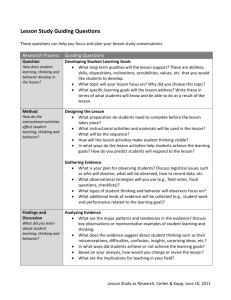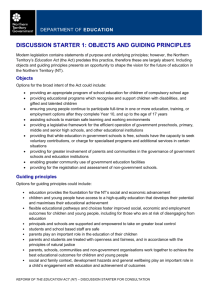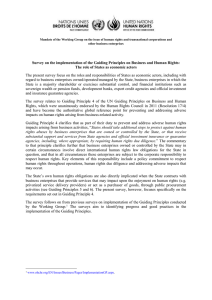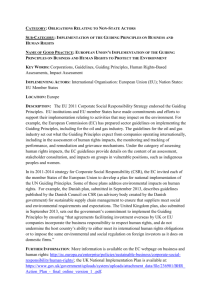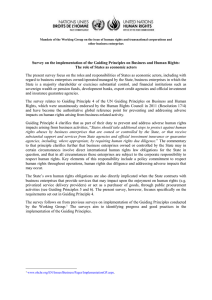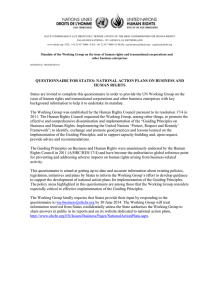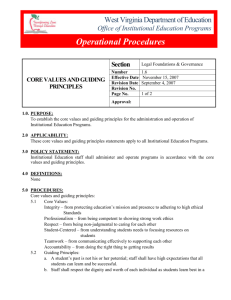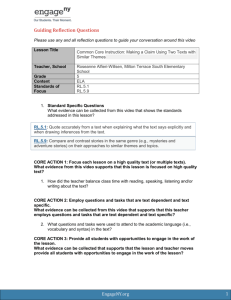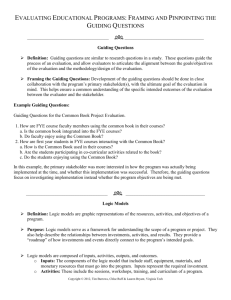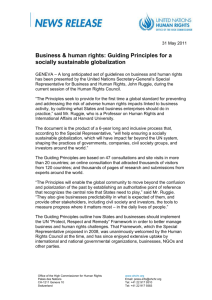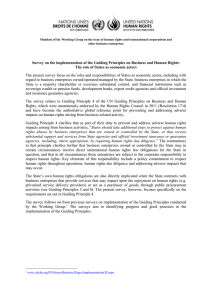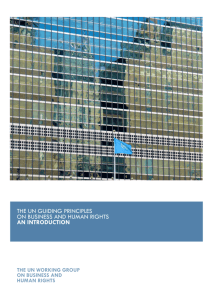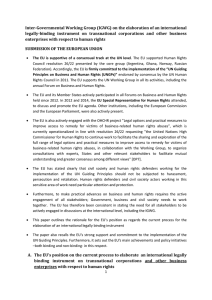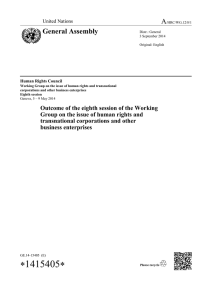Joint statement delivered by Norway
advertisement
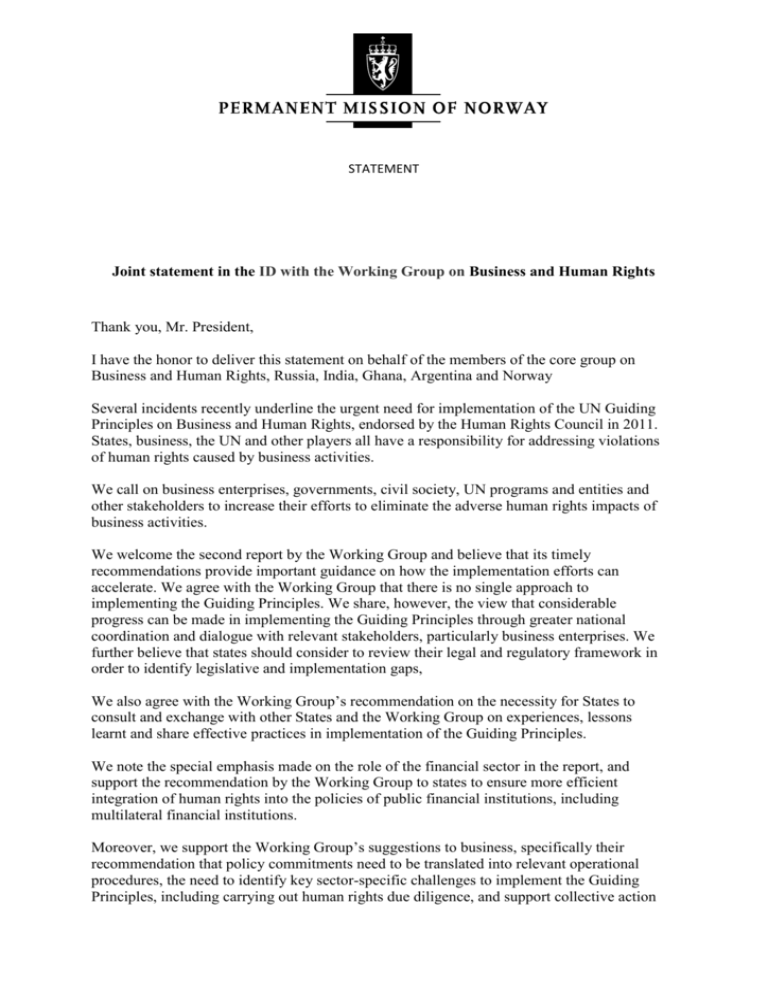
STATEMENT Joint statement in the ID with the Working Group on Business and Human Rights Thank you, Mr. President, I have the honor to deliver this statement on behalf of the members of the core group on Business and Human Rights, Russia, India, Ghana, Argentina and Norway Several incidents recently underline the urgent need for implementation of the UN Guiding Principles on Business and Human Rights, endorsed by the Human Rights Council in 2011. States, business, the UN and other players all have a responsibility for addressing violations of human rights caused by business activities. We call on business enterprises, governments, civil society, UN programs and entities and other stakeholders to increase their efforts to eliminate the adverse human rights impacts of business activities. We welcome the second report by the Working Group and believe that its timely recommendations provide important guidance on how the implementation efforts can accelerate. We agree with the Working Group that there is no single approach to implementing the Guiding Principles. We share, however, the view that considerable progress can be made in implementing the Guiding Principles through greater national coordination and dialogue with relevant stakeholders, particularly business enterprises. We further believe that states should consider to review their legal and regulatory framework in order to identify legislative and implementation gaps, We also agree with the Working Group’s recommendation on the necessity for States to consult and exchange with other States and the Working Group on experiences, lessons learnt and share effective practices in implementation of the Guiding Principles. We note the special emphasis made on the role of the financial sector in the report, and support the recommendation by the Working Group to states to ensure more efficient integration of human rights into the policies of public financial institutions, including multilateral financial institutions. Moreover, we support the Working Group’s suggestions to business, specifically their recommendation that policy commitments need to be translated into relevant operational procedures, the need to identify key sector-specific challenges to implement the Guiding Principles, including carrying out human rights due diligence, and support collective action to address these. We note the reported high number of submissions on alleged abuses linked to business activities. We support the Working Group’s assertion as to the important and legitimate role of trade unions, civil society organizations and human rights defenders in raising awareness of the human rights impacts and risks of some business enterprises and activities. We believe that it is necessary to give more attention to barriers to access to remedy, and how to protect victims of corporate human rights violations. It is important to efficiently scale up the grievance mechanisms set out in the Guiding Principles. This requires more competence and capacity building both within states and business to enhance access to both judicial and non-judicial remedy. There is a particular need for guidance on how to address conflicts between enterprises and indigenous peoples. Mr. President, The resolution 21/5, adopted in the 21st session of the Human Rights Council, clearly underscores the need for a strategic approach to ensure integration of the business and human rights agenda in the UN system. We appreciate efforts made by the UN system to integrate the business and human rights agenda into the future framework, including planning, advocacy and capacity-building across its engagements. We share the views of the Working Group, however, that the UN should better coordinate activities related to business and human rights, and increase their efforts to raise awareness and build the capacity of State authorities and business enterprises at the national level to implement the Guiding Principles. The Guiding Principles concern the entire United Nations system, not only the OHCHR. Finally, we would like to express our great concern that the decision by the Council in resolution 21/5 (last September) to undertake a feasibility study of a fund for capacity building has not been followed up due to a lack of budgetary resources. This underscores how decisions made by the Human Rights Council and mandatory tasks by the OHCHR depend on voluntary contributions. If Resolutions adopted by the Council are to be fully implemented, the budget situation and the allocation of funds need to be promptly addressed. Thank you. Page 2

